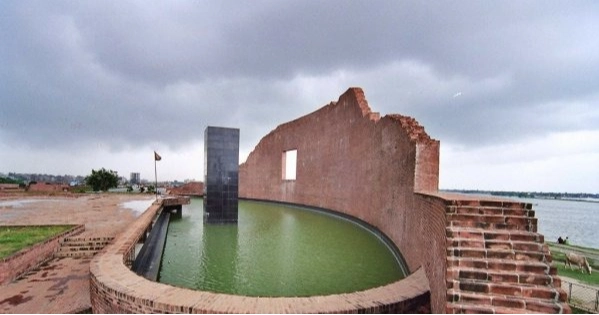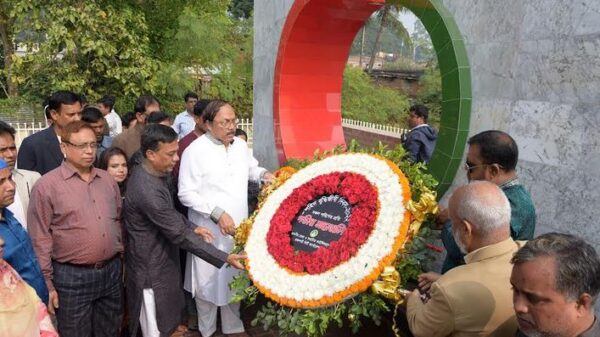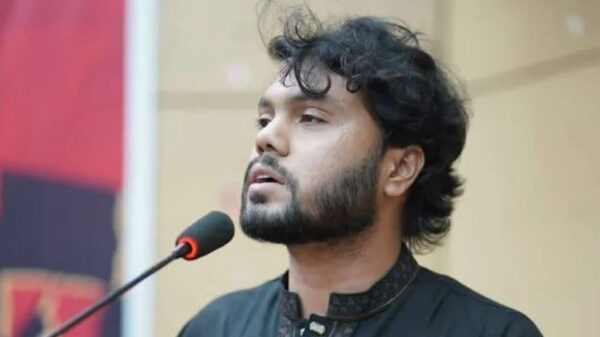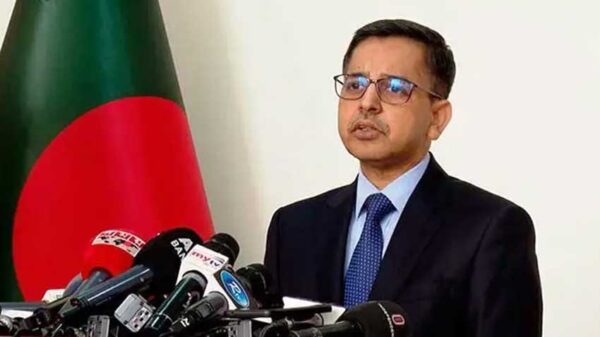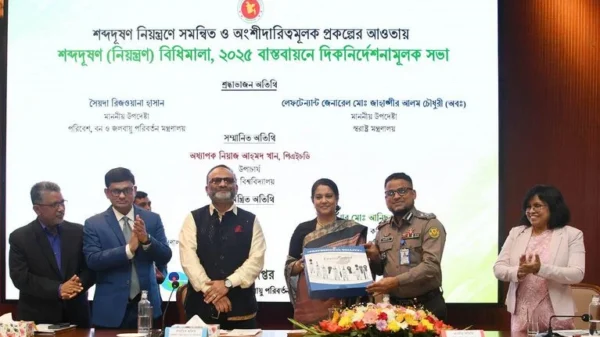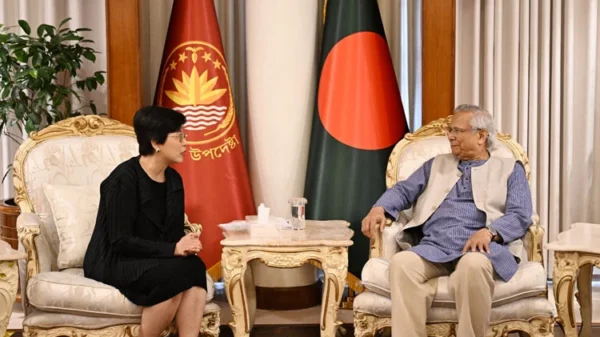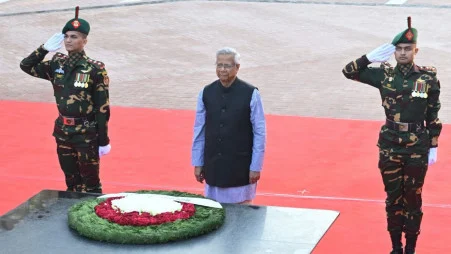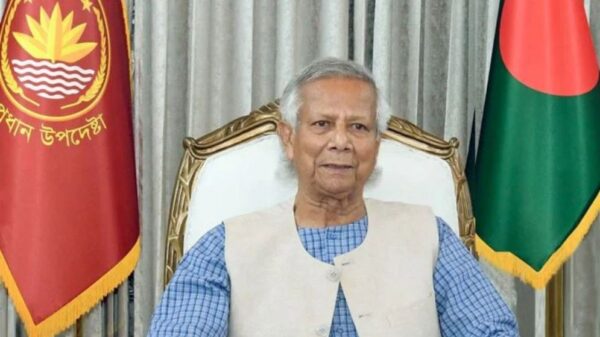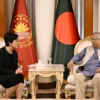Staff Reporter:
The maximum temperature in the country was recorded at 42.2° degrees Celsius in Chuadanga district at 3:00 pm on Saturday, Rakibul Hasan, senior observer of Chuadanga First Class Weather Observatory said.
The district recorded the highest temperature in the country for the 14th consecutive day today, he said.
Meanwhile, the ongoing heat wave has impacted public lives. The high temperature is causing problems for children and the elderly. Working and people with low incomes are more vulnerable to the scorching sun’s sweaty temperatures.
Day laborers, rickshaw pullers, van drivers are not able to work, due to the intense heat. As a result, many people have been seen spending idle time. While for a living, many others had to go to work, ig-noring the sun.
The temperature is expected to rise for the next three to four days and the lack of rainfall has begun to have an impact on the biodiversity.
Van drivers said they could not go to work properly due to the extreme heat in the last one week.
The income has dropped. Earlier, it was possible to earn Tk 400 to Tk 500 a day. Now it is difficult to earn even Tk 200 due to the extreme heat, they said.
The number of pediatric patients in the hospital is increasing every day. The residents of the district are in a state of panic due to the scorching heat.
A housewife in Chuadanga municipal area said, “my three children have been suffering from fever, cold and cough for the last few days. I don’t know when rain will come.”
Every day 70-80 patients are being admitted to Chuadanga Sadar Hospital. Among these, there are more diarrhea and typhoid patients. Resident Medical Officer of Sadar Hospital Fateh Akram said most of the patients who came to the hospital for treatment were suffering from heat-related diseases.
Chuadanga Deputy Commissioner Mohammad Aminul Islam Khan said, “The district administration is alerting the public using loud mics at all places. They should not leave the house unless absolutely neces-sary. It is advisable to eat more sorbet, water and fruits in the evenings.”
“The Sadar Hospital authorities have been instructed to make special arrangements for the treatment of heat-related patients including stroke and diarrhea,” he said.
Rain will not be easily seen, as this summer is different. The humidity in the air is lower than normal. As soon as the sun rises, it is giving intense heat. As the day progressed, the sun became a flame of fire. Especially in the afternoon, it is difficult to get out, said Rakibul.
After a mild, moderate and severe heat wave, a very severe heat wave has started in the district. In the heat, the mango bunch, the rice seeds are falling. All kinds of cultivation, including vegetable fields, are likely to be disrupted.
According to the Department of Agricultural Extension, Boro rice and mango seeds are drying up due to the intense heat. Agriculture officials advised to spray water on mango trees and irrigate all types of vegetable fields, including Boro rice, every day and retain irrigation water.
Bibhas Chandra Saha, deputy director of the Department of Agricultural Extension, said “the crops are being damaged due to the extreme heat. Our agriculture department officials are constantly advising farmers on what to do in the heat.”


